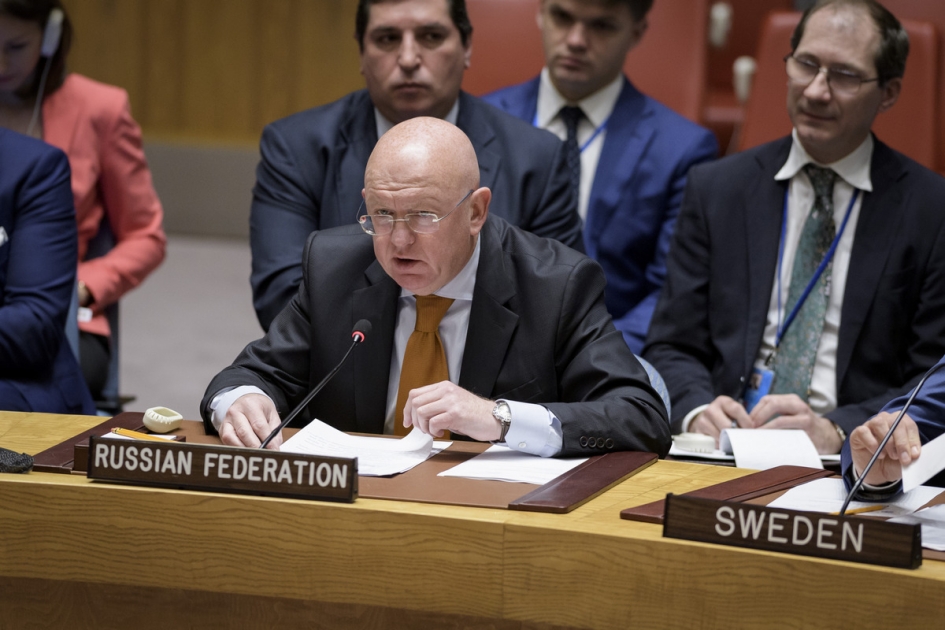Statement by Ambassador Vassily A. Nebenzia, Permanent Representative of the Russian Federation to the United Nations, at the Security Council meeting on Libya sanctions
We were unable to support resolution 2441 (2018), drafted by the United Kingdom. No account was taken of our principled and duly justified comments.
The authors incorporated into the resolution a provision specifying sexual and gender-based violence as a separate criterion for sanctions, although such actions are fully covered in the existing listing criteria. The existence of precedents in the Committee established pursuant to resolution 2127 (2013) and recently extended pursuant to resolution 2399 (2018) concerning the Central African Republic, as well as in the Committee established pursuant to resolution 2206 (2015) concerning South Sudan, does not mean that the practice should automatically apply to all country situations, each of which is unique. Any unjustified appearance of a gender component in the work of the Panel of Experts of the Committee established pursuant to resolution 1970 (2011) concerning Libya will distract the experts from their main tasks.
The resolution is adopted under Chapter VII of the Charter of the United Nations, based on which the Security Council identifies the presence of threats to international peace and security and adopts decisions on measures to be taken. That is the Council’s core prerogative. The issue of sexual and gender-based violence is considered by specialized bodies, such as the Human Rights Council and the Commission on the Status of Women.
The appropriate division of labour must be adhered to. If not, the Security Council will find itself chasing after violators and trying to reason with domestic tyrants rather than resolving conflicts. Sexual and gender-based violence is part of the general level of criminality in any country. For example, open-source data shows that there has been a steady rise in instances of sexual violence in Sweden, while in the Netherlands the indicator for violence against women is among the highest in the European Union. Combating this kind of crime falls first and foremost within the remit of national Governments.
Measures taken by the international community must be auxiliary in nature. We get the impression that the countries that are pushing this issue on the Council’s agenda are trying to make domestic political capital out of the imposition of sanctions regimes on other States. It has occurred to no one to consider whether Security Council sanctions on specific individuals for sexual violence in Libya will actually help prevent such crimes there. That approach is populism reduced to its essence. The facts of these kinds of crimes committed against migrants in Libya only confirm our view that the most effective way to combat them is to eradicate the criminal networks involved.
Everything, including the information from the Panel of Experts, indicates that the tracks lead to the migrants’ countries of destination and Europe most of all. Yet we have seen no desire on the part of the European countries to impose Security Council sanctions on their own criminal authorities.
Very recently, when the mandate of the United Nations Mission for the Referendum in Western Sahara was being extended (see S/PV.8387), we spoke about the abuse of their powers by some penholders for particular issues on the Security Council’s agenda. Today’s case also attests to the resolution’s authors’ unconstructive methods, in which no effort is made to adopt documents by consensus. The penholdership mechanism needs major change.
